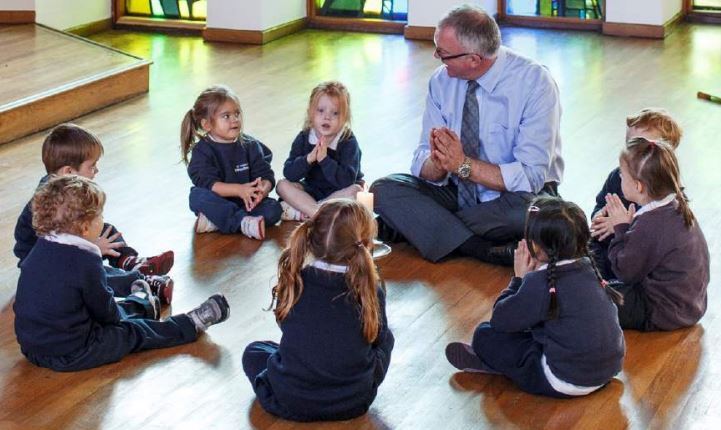
Many of the 2,175 Catholic schools, colleges and academies in England employ lay chaplains to address the social, emotional and spiritual needs of students and staff. However, lack of career progression and limited pay can result in low numbers of applicants for school chaplain vacancies, stretched between multiple sites, and who then move on to jobs with better prospects.
Tom Baptist, in collaboration with the Diocese of Nottingham Education Service, has highlighted the issue in establishing a career pathway from apprentice level up to a regional chaplaincy director. Within this a lay chaplain support staff post has been created to avoid teaching assistants taking on pastoral duties beyond their role. It provides formal recognition for their work, improved salary, and potential career progression into chaplaincy.
The lay chaplains are supported by the education structure in Nottingham Diocese, with all 84 of its state-funded Catholic schools within three multi-academy trusts (MATs). Consistent pay and conditions are ensured by the diocesan Human Resources Director who oversees all three MATs.
Also working to solve this problem is Susan Elderfield, Chaplaincy Adviser for the Archdiocese of Southwark, where there are 163 Catholic schools. In 2020 at the beginning of the pandemic she approached St Mary’s University, in Twickenham, to set up a Chaplaincy and Youth Ministry Apprenticeship. This resulted in the Education Skills Funding Agency awarding the university training provider status.
The Level 4 apprenticeship promotes a vocational pathway to develop the knowledge, skills and behaviours of chaplains and youth ministers. It pays particular attention to their formation, which has historically suffered due to an overreliance on informal on-the-job training with some support.
The apprenticeship covers a range of topics, including safeguarding, special education needs and disabilities, bereavement, mental health, behaviour management and the skills to support and lead the spiritual, religious and liturgical life of a school. During the programme each apprentice qualifies as a Youth Mental Health First Aider and achieves a Catholic Certificate in Religious Studies.
Apprentice Alexandra Shelton-Bourke described her experience of studying the course as ‘incredible’, and ‘very practical’. She said: “I continue to learn and develop different skills that I would not have learned otherwise. These skills have been valuable during my placement at school when leading a staff liturgy and delivering acts of worship to students.”
As a result of this apprenticeship, Susan said: “In Southwark, a greater number of schools now have access to a chaplain, and the apprentices feel part of a professional support network. This is important for pupils and for the Catholic life and mission of schools.”
The first 15 apprentices are currently on placements in schools and retreat centres across the dioceses of Southwark, Westminster, Nottingham and Birmingham. They come from a range of backgrounds and ages, some straight from school, others graduates and youth workers, and one a former managing director. Recruitment is currently ongoing for the third cohort which will start in January 2024.
Find out more about the School and College Chaplaincy and Youth Ministry apprenticeship

